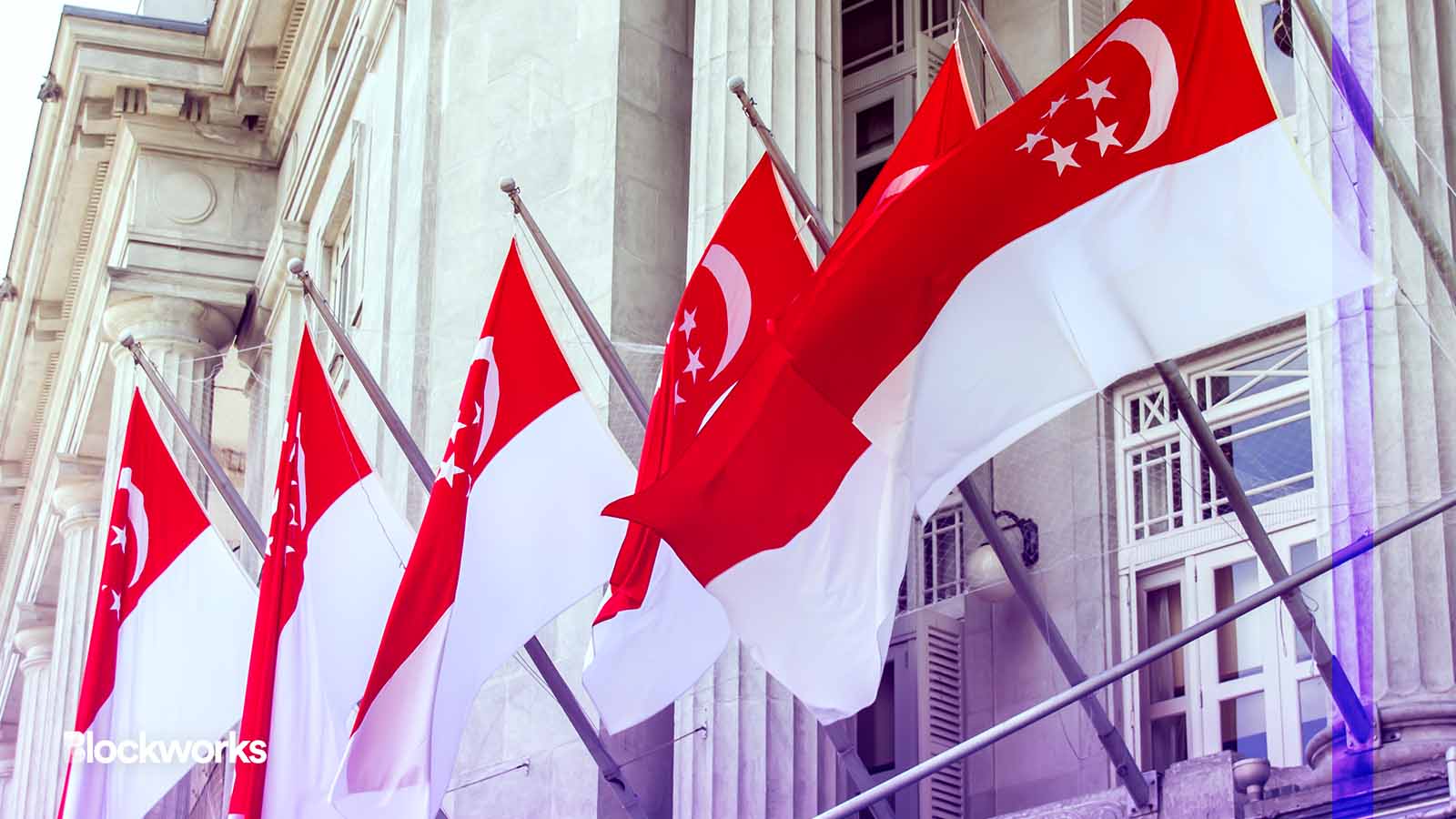Digital asset networks need to be ‘interoperable,’ Singaporean regulator says
The latest paper from the Monetary Authority of Singapore looks into three models: private and permissioned, permissionless, and public and permissioned

small1/Shutterstock modified by Blockworks
The Monetary Authority of Singapore released a possible framework for digital assets as part of its continuing research.
Project Guardian, which is a collaboration between the regulator and other entities in the financial industry, is meant to test out digital asset and DeFi applications and infrastructure.
The project has four areas of focus: interoperable networks, assets tokenization, institutional grade DeFi protocols and trust anchors.
Interoperability is the current focus for MAS, meaning how digital assets can be utilized and traded across platforms.
“Digital asset networks may play a foundational role in a future-state financial landscape where digital assets and currencies can be exchanged seamlessly across different networks,” MAS wrote.
The project wants to ensure that any proposed network or interoperability features “serves the needs of market participants, ensures financial integrity, and maintains financial stability.”
Currently, “existing digitalization efforts fall short of the expectations of efficiency improvement, greater financial access, and improved revenue opportunity which proponents of digital assets and DLT tout.
The paper takes a look at multiple models, including ‘private and permissioned’ and ‘public and permissioned.’ The first would require the operator or owner of the platform to invite participants in order to engage in activities on the platform. The second would allow anyone to participate in activities but would require identification.
There’s also public and permissionless, which would allow anyone to participate on the platform, while also allowing people or organizations to deploy smart contracts — all of which could occur anonymously.
The paper examined what kind of verifiable credentials would need to take place, and how institutions could operate as trust anchors.
If financial institutions were to act as trust anchors, then the “responsibilities and the liabilities of a trust anchor must be clearly defined as well. In addition, there must be sufficient incentive for financial institutions to take on the added responsibility of being a trust anchor.”
The paper notes that there are privacy concerns in exploring digital asset frameworks since traditional finance has privacy built in, which would not be available on a public network.
However, depending on the framework, the wallet addresses could be public “while the information on the owners of the wallets will continue to be privately maintained with the trust anchors.”
And, finally, the paper suggests regulators find common ground, stating that “a coordinated international approach amongst financial regulators and international standard-setting bodies is required to achieve common regulatory outcomes across jurisdictions and reduce frictions in cross-border transactions.”
Last week, the Bank of Italy, South Korea, and the International Monetary Fund teamed up with MAS to pen a paper on digital money and its use cases. It also approved Ripple to offer its payment services.
Get the news in your inbox. Explore Blockworks newsletters:
- The Breakdown: Decoding crypto and the markets. Daily.
- 0xResearch: Alpha in your inbox. Think like an analyst.






